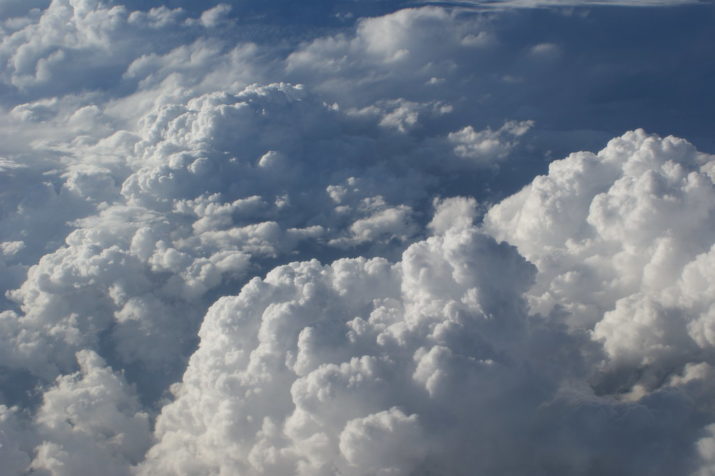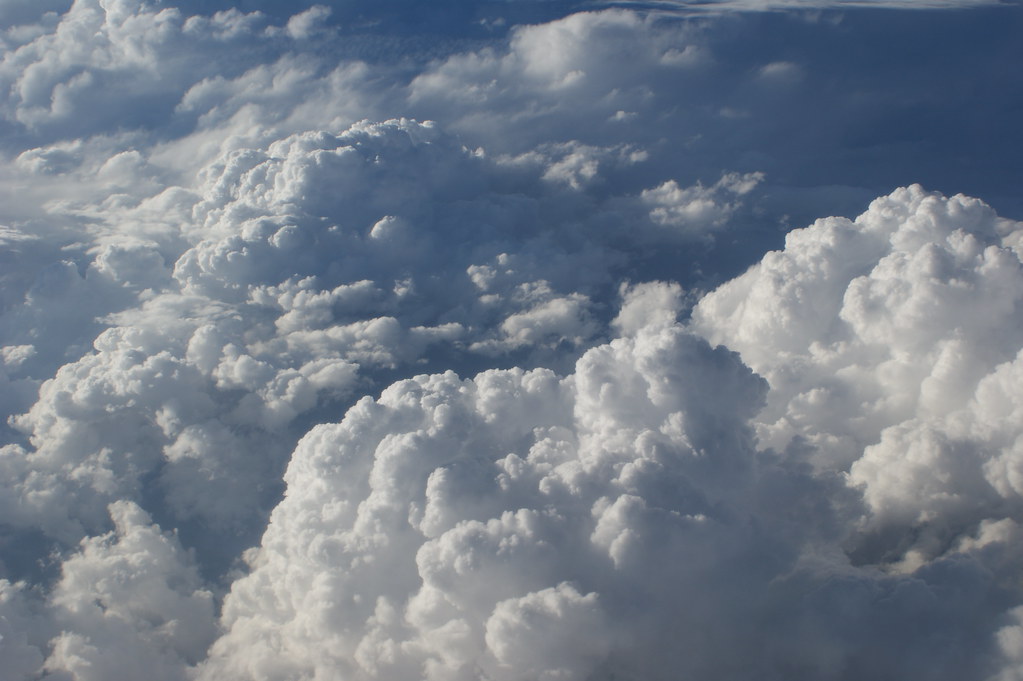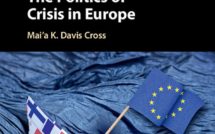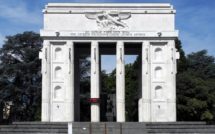
(IL)LEGAL: New Artistic and Curatorial Approaches to the History of Migration in Germany

This is part of our Campus Spotlight on Bard College Berlin.
Germany’s migration history of the twentieth and twenty-first century is shaped by its own denial. Until this day, and in spite of the fundamental shift of the new citizenship and residency laws in the years between 2000 and 2005, Germany cannot conceive of itself as an immigration country – a fact that has had a profound impact on the European migration regime, leading to an illegalization of most forms of migration to the European continent.
Bard College Berlin, privileged because of a highly diverse student body that possesses a multitude of experiences and recollections of legal and illegal migration, offers an ideal environment to challenge this history. Challenging the “(IL)LEGAL” however, does not only imply having to overcome the methodological nationalism still prevalent in historiography and in migration studies. It also means challenging the conventional forms of teaching and academic work. So in order to tap into the innovative potential of our students’ migratory knowledge and experience, we have adopted a research-creation approach that invites the students to combine academic research and artistic production in individual projects, which we develop together using their memories, associations, and questions.
Taking Abdelmalek Sayad’s concept of “unruly thinking” (“to follow the migrant is to transgress all borders”) to the field of the history of (il-)legalization and juridification of migration in Germany, the introductory phase of the course confronts the complex, strongly formalized institutional structure of the German and European migration regime and how it historically emerged, with the students’ personal and concrete migratory experiences, thereby uncovering the migration regime’s ideological nature. Concurrently it introduces the students to works of art and to artists whom we invited for lectures (Hiwa K, Saâdane Afif), thereby revealing the possibilities, the chances and also the ambiguities of artistic approaches to legal and illegal migration. The students then embark upon their individual projects: They develop a question or a theme, acquire the research knowledge that they need as a basis, choose their medium of expression (film, photography, music, poetry/text, performance, painting, collage, etc.), develop a concept and then proceed with the realization and completion of an art work.
Mid-May 2019 the students’ works will be shown to the public on the occasion of the opening of Henry Koerner Hall, a new student residence at Bard College Berlin. The exhibition will form the students’ contribution to a kaleidoscopic conversation on art and politics, war, migration, and representation, set in and with reference to the heritage of Henry Koerner, a Jewish-Viennese artist born in 1915 who left Vienna in 1938 to escape to the US. The assignments that help the students to develop and eventually complete their projects require from them a constant translation process between academic, research-based, conceptual thinking and artistic, associative creativity. The students have to comment and explain their own work in texts, which eventually get condensed into exhibition texts. Other than in conventional art exhibitions, the artwork and the exhibition text are of equal value, the text is not subordinate to the art.
Co-teaching this course as an art historian/curator and a historian/migration researcher creates a very interesting dynamic where both instructors constantly switch roles, oscillate between teaching and learning, ask questions and become themselves students. This dynamic eventually expands and captures the whole class, transforming students into teachers when they present their knowledge, built on languages, experiences and memories that the other participants in the class, including the teachers, do not and cannot have.
At least five of the students have immediate experience with illegalization and the European migration regime, either having escaped from Syria or Iraq and made their way to Germany illegally, and/or having been involved in criminalized humanitarian help on Lesvos. The class represents for them and for others an opportunity to communicate vital messages at the intersection of migration, politics and art. The work created in the class provides an opportunity for the academic community and the public at large to become aware of a side of reality that is marginalized, suppressed or in many instances utterly unknown.
SYLLABUS
Course Description
This class is a continuation of the Fall 2018 seminar “‘Illegal‘ and ‘legal‘ migration in Germany since World War II”, but can also be taken by newcomers. It takes Abdelmalek Sayad’s concept of “unruly thinking“ (“to follow the migrant is to transgress all borders“) onto the field of the history of juridification of migration in Germany, by developing and curating individual artistic projects on questions of legality and illegality of migration. On the basis of interdisciplinary research, each student will create an artistic project, in a medium of choice (film, music, poetry/text, performance, painting, collage, etc.). The production of the individual projects will be accompanied by mentoring sessions with invited contemporary artists. Deploying artistic modes of expression to advance and enhance our previously collected research knowledge should help us to accommodate and to make productive the ambivalences and contingencies of the illegalization and criminalization processes connected with unwanted migration. In the first half of the semester we will work on the concepts and artistic potentials of the projects, meet with artists, go to exhibitions and discuss formats and modalities of presentation for the projects. The second half will be spent with the realization and completion of the art works and with exhibiting/presenting them to the public.
Assessment
Students will be assessed on their ambition and ability to combine research and creative work in the field of migration history. They are assessed on their ability to work independently and responsibly as well as to collaborate among themselves and to communicate with their professors in a timely manner. This includes budgeting their time for research, reading, writing and art production, and participation in the end of semester exhibition.
Grading is also assessed on the preparation and cleaning-up of any spaces used for production or presentation at Bard College Berlin, as well material and equipment preparations for class-time production, when necessary. Some art materials and equipment may be provided, though at times may need to be purchased / acquired directly by each student at their own expense depending on individual project goals.
Please note the following deadlines:
- February 12: an individual proposal (two-three sentences) for a theme; plus a proposal for two either secondary or primary readings
- February 15: a one-page response to one of the art works presented in class
- February 27: oral presentations of your individual project proposals, plus a written summary the night before
- March 16: Midterm Project Proposal: a visualization or “sound draft” of your project, plus a 500 word text explaining it
- April 10: presenting of your art work
- April 21: one half-page exhibition text
- May 8: installing final artwork for exhibition and final grade
- May 12: removal and clean-up of all artworks and materials
Grade Breakdown
Class participation and communication with Professors and among other students: 40%
Written and oral presentation of your project idea: 15%
Midterm Proposal: 15%
Presentation of final project, incl. exhibition text: 30%
Course Schedule
- January 30: Introduction to the History of German Migration Law; Factory/AV Orientation
Readings:
– “Illegal entry and immigrant smuggling“, on the Website of the Federal Interior Ministry, https://www.bmi.bund.de/EN/topics/migration/illegal-entry/illegal-entry-node.html
– Jenny Gesley: Germany: The Development of Migration and Citizenship Law in Postwar Germany, The Law Library of Congress, Global Legal Research Center, March 2017 (11 pages).
Also you might want to have a look at the 144 pages law that regulates entry and residence in Germany, the „Residence Act“ of 2004: https://www.gesetze-im-internet.de/englisch_aufenthg/englisch_aufenthg.pdf, especially section 95-97.
- February 6: “Illegality, Inc“ – Introduction to the Europeanization of Migration Control
Reading:
– Ruben Andersson: Illegality, Inc. – Clandestine Migration and the Business of Bordering Europe, Berkeley (University of California Press) 2014, chapter 3: Hunter and Prey, pp. 98-130.
– “Italy: ‚Historic’ European Court judgment upholds migrants’ rights“, on the Website of Amnesty International, 23 February 2012, https://www.amnesty.org/en/latest/news/2012/02/italy-historic-european-court-judgment-upholds-migrants-rights/
- February 13: Autonomous Practices versus Representative Practices
Reading:
Natasha King: No Borders. The Politics of Immigration Control and Resistance, London (Zedbooks) 2016, chapter 1: What is a no border politics?, pp. 24-50
- February 20: Oral Presentations of Individual Project Ideas
- February 27: Oral Presentations of Individual Project Ideas
- 6 hours Workshop on Friday, March 8, 19:00-21:00, and Saturday, March 9, 10:00-12:00 and 13:00-15:00, with the artist Penny Yassour
- March 20: Production
- March 27: Production
9) April 3: Production
10) April 10: Presentation of the Projects and Planning of the Exhibition
– April 17: Spring Break –
12) April 24: Working on Exhibition Texts and Planning of the Exhibition
– May 1: State Holiday – NO CLASS
13) May 8: Installing the Exhibition
May 10, 18:00-22:00: Exhibition Opening connected to a Public Panel Discussion
The production workshop and exhibition for this class draw on the generous support of the Andrew W. Mellon Foundation made available through the Consortium on Forced Migration, Education and Displacement.
Marion Detjen teaches migration history at Bard College Berlin and advises Bard College Berlin’s Program for International Education and Social Change, a scholarship program for displaced students. She studied history, literature and linguistics in Munich and Berlin. Her PhD thesis dealt with people smuggling and escape help after the building of the Berlin Wall. Her research focusses on exile and migration in the German, European and transatlantic context since World War II.
Dorothea von Hantelmann is Professor of Art and Society at Bard College Berlin. Her main fields of research are contemporary art and theory as well as the history and theory of exhibitions. Among her publications are How to Do Things with Art (2010) and Die Ausstellung. Politik eines Rituals [The exhibition. Politics of a Ritual] (2012).
Bard College Berlin is part of the Mellon-Funded Consortium on Forced Migration, Displacement, and Education.
Published on April 5, 2019
Photo: Daniel Spiess, Clouds | Flickr




